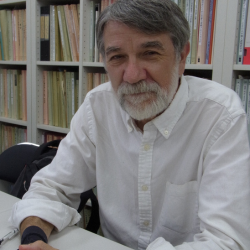Japan’s Prisoners of Conscience -- Protest and Law During the Iraq War

When:
Wednesday, April 17, 2024
3:00 PM - 4:30 PM CT
Where: Crowe Hall, 1132, 1860 Campus Drive, Evanston, IL 60208 map it
Audience: Faculty/Staff - Student - Post Docs/Docs - Graduate Students
Contact:
Laura Hein
l-hein@northwestern.edu
Group: East Asia Research Forum
Category: Academic
Description:
When the Bush Administration demanded Japanese “boots on the ground” to support its 2003 invasion of Iraq, Prime Minister Jun’ichiro Koizumi responded by deploying a small contingent of the Self-Defense Forces in the first significant display of SDF force abroad. On the day following the initial deployment, three antiwar protesters distributed flyers at SDF apartment buildings in Tachikawa titled “Let’s Think Together and Raise Our Voices Against the SDF Deployment to Iraq!” They were arrested a month later and detained in police cells for 75 days. Amnesty International called the three Japanese detainees “Prisoners of Conscience,” the first time it applied the term in Japan.
The case presented a severe test for Japan’s criminal justice system. Who would stand up to support the lonely trio? Would they find adquate defense counsel? How would the lawyers be paid? Would the courts recognize constitutional protection for political speech?
The author will talk about his new book, Japan’s Prisoners of Conscience -- Protest and Law During the Iraq War, (Routledge, 2023), that takes readers into Japan’s courtrooms and delivers rich descriptions of the lawyers and supporters who rallied to defend the three protesters.
About the Speaker: Lawrence Repeta has served as a lawyer, business executive and law professor in Japan and the United States. His research focuses on Japan’s constitutional law and public access to government information and processes. He is best known in Japan as the plaintiff in a suit that made constitutional history by opening Japan's courts to free reporting. He has served on the board of directors of Information Clearinghouse Japan, an NGO devoted to promoting open government in Japan, and the Japan Civil Liberties Union.